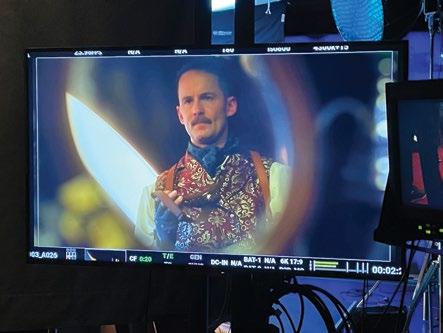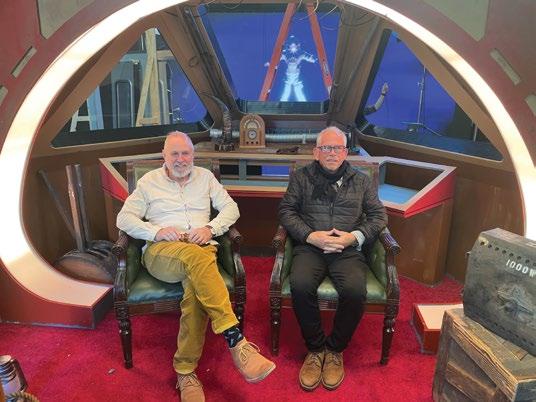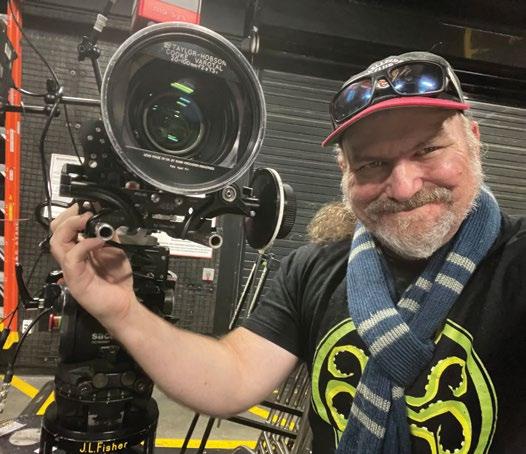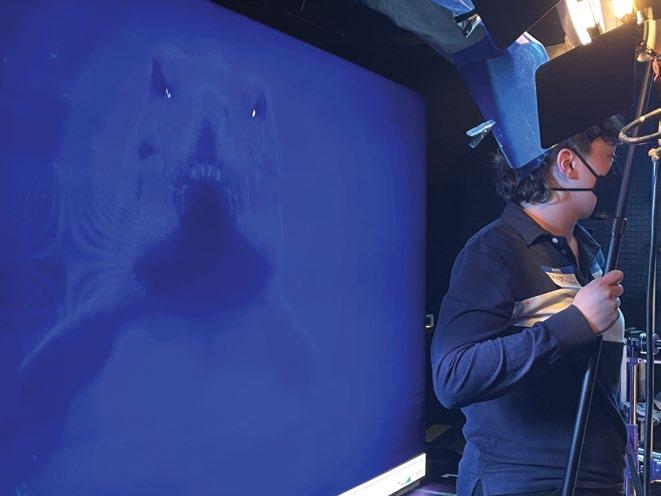
1 minute read
ANIMATION
Students learn all aspects of production by creating shorts each year, beginning with hand-drawn projects, traslating that knowledge to the latest CG tools and culminating in a full-color thesis film. To learn more, visit LCAD.edu understand the technical aspirations of storytelling. “My class is focused on content creation. They’ll design individual projects, but also work as group, potentially collaborating with film students who are specializing in traditional cinematography. We want to lower the barriers of entry to storytelling and have them come up with wild ideas. Every student comes up with a zombie story sooner or later!” gsu.edu/program/digital-filmmaking-virtualproduction-visual-effects-concentration-mfa
“Advanced Unreal Engine for Filmmaking”
Taught by Bennett Bellot (in collab. with Richard Holland and Jurg Walther)
Chapman University
In Orange, California, Chapman’s Dodge College of Film and Media Arts took a page from Hollywood’s playbook and installed a ninefoot LED wall back in 2021. One of the prime movers behind this was Game Development teacher Bennett Bellot, who created the Unreal for Filmmaking course that has now expanded beyond his original goal of creating a pipeline for digital art. The 12-student advanced production course, that Bellot now teaches, is designed to help students bring their Unreal skills onto Chapman’s LED stage and create broadcast-ready scenes. “We have a cross-pollination with students learning lighting and cinematography,” he explains. “Most of my students come out of animation or visual effects, so they’ve done almost everything in front of a computer screen. They hardly ever get on a stage.”
But they are now, jumping into what Bellot calls “the deep end of the pool.” For example, they’ll learn how to create an image from Unreal on a stage and recreate it in camera. “There are LED lights that connect directly to Unreal so that if the camera spins, they’ll change to reflect whatever light they should be showing. The best part is that they can see it in real time. They can show it in Unreal to a cinematographer who’s never seen it before — and then they can make real time changes. Everyone is getting hands-on experience.”
After 15 years focused on teaching Games, Bellot now sees growing opportunities for virtual production students who are learning to become more ‘generalists’ than ‘specialists.’ “I tell them they’re training for a job that doesn’t have a name yet.” chapman.edu













